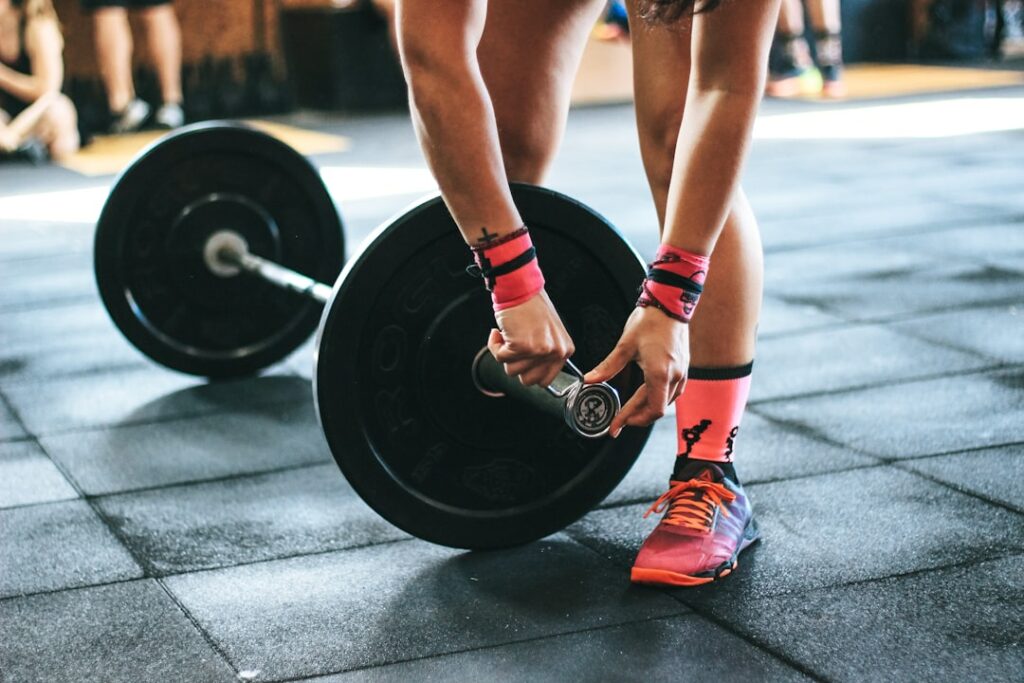As we age, it is natural for our memory function to decline. This decline is a result of various factors, including changes in the brain structure and function, as well as the accumulation of cellular damage over time. Age-related memory decline can manifest in different ways, such as forgetting names, misplacing items, or having difficulty recalling recent events.
Memory function is crucial for seniors as it plays a vital role in daily activities and overall quality of life. Memory allows us to remember important information, such as appointments, medication schedules, and personal relationships. It also enables us to learn new skills and adapt to new situations. Therefore, it is essential for seniors to find ways to maintain and improve their memory function.
Key Takeaways
- Age-related memory decline is a natural part of aging.
- Memory techniques can help seniors improve their memory.
- Some memory techniques that work include visualization and repetition.
- Mindfulness and meditation can boost memory and concentration.
- Physical exercise, socialization, nutrition, and sleep are all important for memory improvement in seniors.
The Importance of Memory Techniques for Seniors
Memory techniques are crucial for seniors because they can help compensate for age-related memory decline and improve overall cognitive function. These techniques involve using specific strategies and exercises to enhance memory encoding, storage, and retrieval processes.
By using memory techniques, seniors can experience several benefits. Firstly, these techniques can improve their ability to remember important information, such as names, dates, and facts. This can enhance their confidence and independence in daily activities. Secondly, memory techniques can also enhance cognitive function in other areas, such as attention and problem-solving skills. This can lead to improved overall cognitive performance and a better quality of life.
Memory Techniques: What Works and What Doesn’t
There are various memory techniques that seniors can use to improve their memory function. Some of these techniques have been scientifically proven to be effective, while others may not yield significant results.
One effective memory technique is spaced repetition. This technique involves reviewing information at increasing intervals over time. By spacing out the review sessions, seniors can reinforce their memory of the information and improve long-term retention.
Another effective technique is visualization. This involves creating vivid mental images to help remember information. For example, if a senior needs to remember a grocery list, they can visualize each item in a specific location in their house. This technique leverages the brain’s natural ability to remember visual information.
On the other hand, some memory techniques may not be as effective. For example, rote memorization, which involves repeating information over and over again, may not lead to long-term retention. Similarly, relying solely on external memory aids, such as calendars or reminders, may not improve memory function in the long run.
Mindfulness and Meditation: Boosting Memory and Concentration
Mindfulness and meditation practices have been shown to improve memory and concentration in individuals of all ages, including seniors. These practices involve focusing one’s attention on the present moment and cultivating a non-judgmental awareness of thoughts and sensations.
Mindfulness and meditation can improve memory and concentration by reducing stress and anxiety, which are known to impair cognitive function. These practices also enhance attentional control and working memory capacity, allowing seniors to better focus on and remember information.
Seniors can incorporate mindfulness and meditation into their daily routine by setting aside dedicated time for practice. This can be as little as 10 minutes a day. They can start by finding a quiet and comfortable space, sitting in a relaxed posture, and focusing on their breath or a specific object. Over time, seniors may notice improvements in their memory function and overall cognitive performance.
Mnemonic Devices: Techniques for Remembering Information
Mnemonic devices are memory techniques that involve using associations or mental cues to remember information. These devices can be particularly helpful for seniors who struggle with remembering names, numbers, or other types of information.
One mnemonic device is the method of loci, also known as the memory palace technique. This technique involves associating each piece of information with a specific location in a familiar environment, such as a house or a street. By mentally walking through the environment and recalling the associated information, seniors can improve their memory retrieval.
Another mnemonic device is acronyms, which involve creating a word or phrase using the first letters of a list of items to be remembered. For example, to remember the order of the planets in our solar system (Mercury, Venus, Earth, Mars, Jupiter, Saturn, Uranus, Neptune), seniors can create the acronym «My Very Eager Mother Just Served Us Nachos.»
Physical Exercise: Enhancing Brain Function and Memory

Physical exercise has been shown to enhance brain function and memory in individuals of all ages, including seniors. Exercise increases blood flow to the brain, promotes the growth of new neurons, and enhances the release of neurotransmitters that are important for memory and cognitive function.
Seniors can incorporate physical exercise into their daily routine by engaging in activities such as walking, swimming, or yoga. It is recommended to aim for at least 150 minutes of moderate-intensity aerobic exercise per week, along with strength training exercises twice a week. By staying physically active, seniors can improve their brain health and memory function.
Socialization: The Role of Social Interaction in Memory Retention
Social interaction plays a crucial role in memory retention for seniors. Engaging in social activities and maintaining strong social connections can help stimulate the brain and improve cognitive function.
Seniors can stay socially active by participating in group activities or joining clubs or organizations that align with their interests. They can also make an effort to connect with friends and family members regularly through phone calls, video chats, or in-person visits. By staying socially engaged, seniors can enhance their memory retention and overall cognitive performance.
Nutrition: Eating for Brain Health and Memory Improvement
Nutrition plays a significant role in brain health and memory function. Certain nutrients have been shown to support cognitive function and protect against age-related cognitive decline.
Seniors can eat a brain-healthy diet by incorporating foods rich in antioxidants, omega-3 fatty acids, and vitamins B6, B12, and E. These include fruits and vegetables, fatty fish, nuts and seeds, whole grains, and lean proteins. It is also important to stay hydrated by drinking plenty of water throughout the day. By nourishing their bodies with brain-healthy foods, seniors can support their memory function and overall cognitive health.
Sleep: The Importance of Restful Sleep for Memory Maintenance
Restful sleep is essential for memory maintenance. During sleep, the brain consolidates and stores memories, allowing for better recall and retention.
Seniors can improve their sleep quality by establishing a regular sleep schedule, creating a relaxing bedtime routine, and ensuring a comfortable sleep environment. It is also important to avoid stimulants such as caffeine or electronic devices close to bedtime. By prioritizing restful sleep, seniors can support their memory function and overall cognitive performance.
Putting it All Together: Creating a Personalized Memory Improvement Plan for Seniors
To create a personalized memory improvement plan, seniors can follow these steps:
1. Assess current memory strengths and weaknesses: Identify areas where memory function is strong and areas that need improvement.
2. Set specific goals: Determine what specific information or skills seniors want to improve their memory for.
3. Choose appropriate memory techniques: Select memory techniques that align with the identified goals and preferences.
4. Create a daily routine: Incorporate memory techniques into a daily routine that includes mindfulness and meditation practices, physical exercise, social activities, brain-healthy nutrition, and restful sleep.
5. Monitor progress: Regularly assess progress towards the goals and make adjustments to the memory improvement plan as needed.
By following these steps and incorporating various memory techniques into their daily routine, seniors can improve their memory function and overall brain health.
Memory function is crucial for seniors as it plays a vital role in daily activities and overall quality of life. By using memory techniques, such as spaced repetition and visualization, seniors can improve their ability to remember important information and enhance cognitive function. Mindfulness and meditation practices can also boost memory and concentration by reducing stress and enhancing attentional control. Additionally, incorporating physical exercise, socialization, brain-healthy nutrition, and restful sleep into their daily routine can further support memory function and overall cognitive health. By creating a personalized memory improvement plan and incorporating these tips and techniques, seniors can enhance their memory and maintain optimal brain health.
If you’re interested in improving your cognitive abilities beyond memory techniques, you might find this article on developing critical thinking techniques for analytical reasoning helpful. Critical thinking is an essential skill that can enhance problem-solving abilities and decision-making processes. By honing your analytical reasoning skills, you can effectively evaluate information, identify patterns, and make logical connections. Check out the article here to learn more about how to develop critical thinking techniques for analytical reasoning.
FAQs
What are memory techniques?
Memory techniques are strategies or methods used to improve memory retention and recall. These techniques can include mnemonic devices, visualization, repetition, and association.
Why do seniors experience age-related memory decline?
As we age, our brain cells and neural connections begin to deteriorate, leading to a decline in cognitive function. Additionally, seniors may experience health conditions or take medications that can affect memory.
What are some common memory problems experienced by seniors?
Seniors may experience difficulty remembering names, dates, appointments, and where they put things. They may also have trouble learning new information and recalling recent events.
How can memory techniques help seniors combat age-related decline?
Memory techniques can help seniors improve their memory retention and recall, making it easier to remember important information and complete daily tasks. These techniques can also help seniors maintain cognitive function and delay the onset of dementia.
What are some effective memory techniques for seniors?
Effective memory techniques for seniors include using mnemonic devices, such as acronyms or rhymes, visualizing information, repeating information aloud, and associating new information with familiar concepts.
Can memory techniques be used by anyone?
Yes, memory techniques can be used by anyone, regardless of age or cognitive ability. These techniques can be especially helpful for individuals who are experiencing memory problems or who want to improve their memory function.






